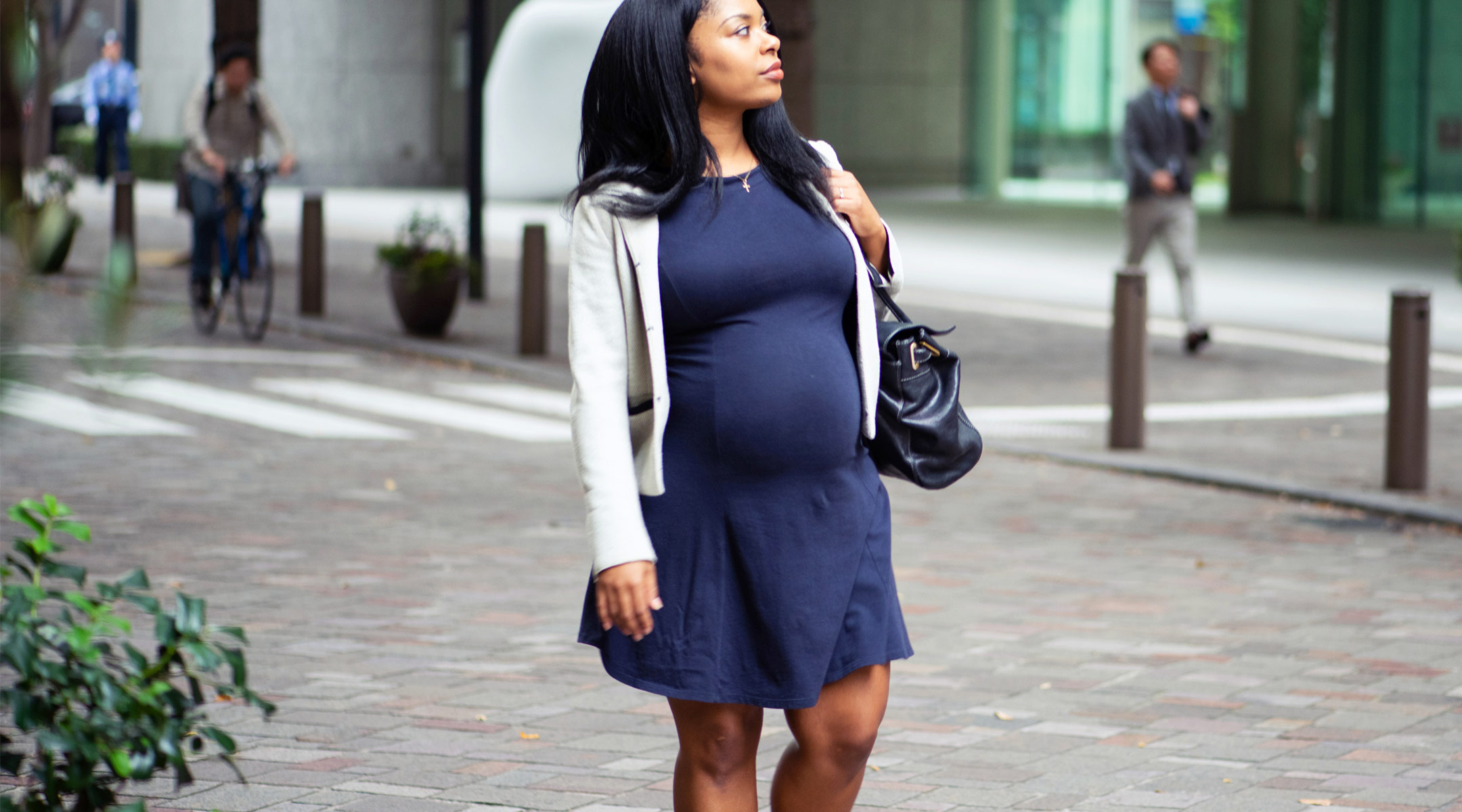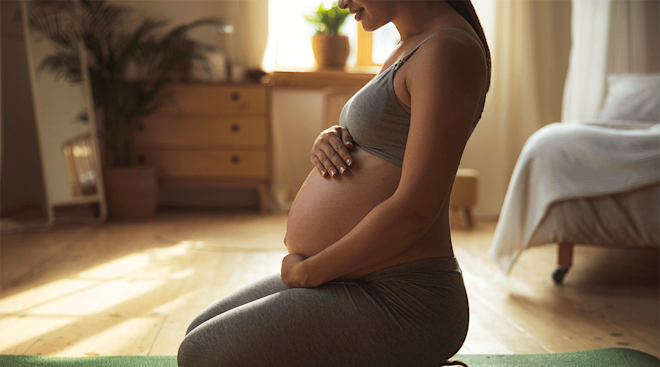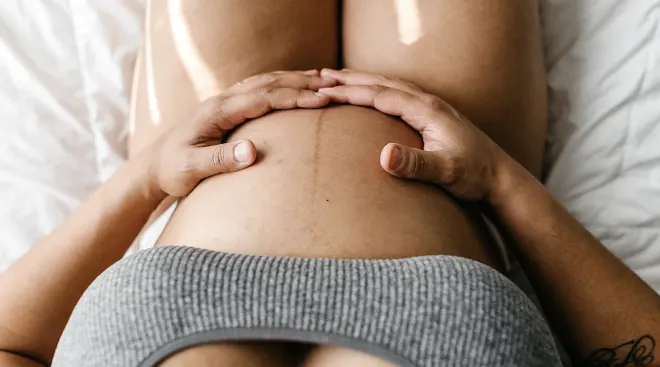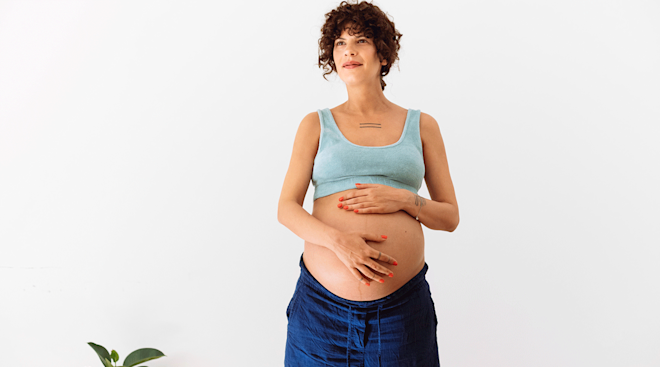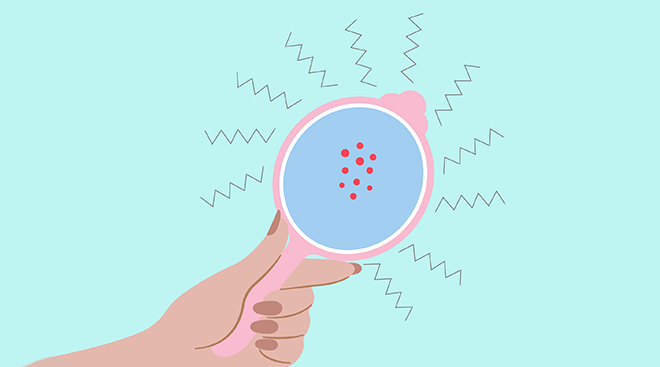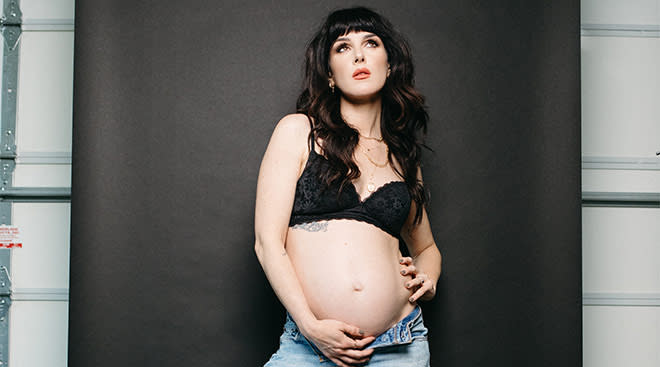How to Cope With Depression During Pregnancy
Pregnancy is built up to be a treasured time in a woman’s life, and for many moms-to-be, the nine months leading up to giving birth is indeed a joyful, exciting period. But what if you feel anything but cheerful and glowing while expecting? That’s the reality for women who experience depression during pregnancy.
“As a culture, we put a lot of pressure on women to be happy about the pregnancy, but for many women this is a time of tremendous stress, and it’s common to go through something like a grieving period as they prepare themselves for their new role as a mother,” says Erin Spahr, LCPC, a psychotherapist at the Baltimore Therapy Group in Towson, Maryland, and founder of the Perinatal Mood Disorders Clinic at The Johns Hopkins Bayview Medical Center.
So how can you tell if you’re dealing with prenatal depression—or just having a bad I-can’t-deal-with-any-more-morning-sickness day? Read on for all you need to know about depression during pregnancy.
Prenatal depression is a mood disorder that affects 10 to 25 percent of expectant women, and research shows it may be becoming even more prevalent. Fluctuations in hormones throughout pregnancy can lead to mood swings, of course, but prenatal depression is more than passing feelings of sadness or stress. Instead, these emotions are persistent, intense and even debilitating.
Prenatal depression can also set new moms up for future mental health complications. “Women who are suffering from depression during pregnancy may go on, during pregnancy or after delivery, to have more severe postpartum depression and should be monitored closely,” says Amanda Itzkoff, MD, assistant professor of psychiatry at Icahn School of Medicine at Mount Sinai in New York City.
Risk factors for depression during pregnancy include:
- Having anxiety
- Dealing with life stress
- Having a previous history of depression
- Having a genetic predisposition toward depression or anxiety
- Not having a social support system to lean on
- Becoming pregnant unexpectedly
- Experiencing partner violence
These risk factors can then be compounded by other stressors, such as the very uncomfortable physical symptoms of pregnancy (hello, swollen feet and aching back) and financial stress that can come with planning for your new family member.
The American College of Obstetricians and Gynecologists (ACOG) recommends that women get screened for depression and anxiety at least once during pregnancy. But even with a screening, identifying prenatal depression can be difficult because symptoms can look like typical pregnancy symptoms, Spahr says. That’s why it’s important to take anything that feels “off” or worrisome seriously. If you’re at all feeling depressed during pregnancy, talk with your physician—and ask for a second opinion if your concerns are dismissed as “just a part of pregnancy.”
While symptoms of depression during pregnancy vary from person to person, they may include:
- Sleeping too much or not enough
- Feeling sad or emotionally numb
- Crying frequently
- Having trouble concentrating, remembering things or making decisions
- Withdrawing from friends and family
- Experiencing extreme mood swings
- Being overly anxious about your baby
- Experiencing low self-esteem or questioning your adequacy as a parent
- Smoking, drinking alcohol or using illicit drugs
- Having suicidal thoughts
When left untreated, stress and depression during pregnancy can impact both your and your baby’s health. Just like depression at other stages of life, prenatal depression can affect how you take care of yourself, which may impact the wellbeing of the fetus. For example, you might not take prenatal vitamins, exercise, eat well or get sufficient medical care.
The condition comes with other health risks for both mom and baby. Women experiencing depression during pregnancy have a higher risk of preeclampsia, gestational diabetes and placental abnormalities, and are more likely to give birth prematurely or to a child with emotional, behavioral or developmental problems. And because prenatal depression increases the risk of postpartum depression, women who have depression during pregnancy may also have trouble bonding with their new baby after the birth.
For most women, psychotherapy is just as effective, if not more so, than medication for treating prenatal depression and anxiety, Spahr says. “A good therapist can help women figure out how to manage conflict with their partner, understand their mixed feelings about becoming a mother or expanding the family, and process thoughts and feelings that may be surfacing from the past.” Some therapists do specialize in maternal care, but when searching for someone to see, the most important factor to take into account is whether you feel comfortable opening up to them.
Moms-to-be with prenatal depression also have the option of taking antidepressants. If you choose to take medication, you and your doctor can weigh the benefits and risks and your physician will likely prescribe a low dose to minimize baby’s exposure. The antidepressants typically considered safest to take during pregnancy include selective serotonin reuptake inhibitors (SSRIs), serotonin and norepinephrine reuptake inhibitors (SNRIs), bupropion (Wellbutrin) and tricyclic antidepressants.
There isn’t a medication specifically designed to treat prenatal depression, but for women who go on to have postpartum depression, in 2019, a drug called brexanolone was approved by the FDA as one of the first-line treatments for severe postpartum depression. “While brexanolone would not be given to a pregnant mother at this time, a woman struggling with prenatal depression can be identified and treatment planning for after the baby’s birth can begin as early as possible, Itzkoff says. Brexanolone is especially useful for new moms suffering from severe postpartum depression, as it can take effect quickly, adds Kendra Segura, MD, an ob-gyn and star on Bravo’s Married to Medicine: Los Angeles. However, it’s an involved treatment with infusions of intravenous medication, so it requires close monitoring in an inpatient facility.
There is no magic bullet for dodging depression during pregnancy, but to lower your risk, consider your mental health history and talk to your doctor about steps you can take to minimize the chance of becoming depressed or anxious. “Many women will want to continue their antidepressant or psychotherapy throughout pregnancy,” Spahr says.
Moms-to-be can also make time for activities and rituals that help them feel their best. That could be taking a daily walk, eating well, making regular dates to see friends and getting sufficient shut-eye. But if depression does creep up, don’t hesitate to take action. “I advise women to be their own advocate and reach out for help and support if they know they’re not feeling well,” Spahr says. “Your mental health is just as important as your physical health.”
If you or someone you know is struggling and needs this, the number for the National Suicide Prevention Lifelife is 1-800-273-8255. You can also contact the Crisis Text Line by texting HOME to 741741.
Updated March 2021
Please note: The Bump and the materials and information it contains are not intended to, and do not constitute, medical or other health advice or diagnosis and should not be used as such. You should always consult with a qualified physician or health professional about your specific circumstances.
Navigate forward to interact with the calendar and select a date. Press the question mark key to get the keyboard shortcuts for changing dates.
































